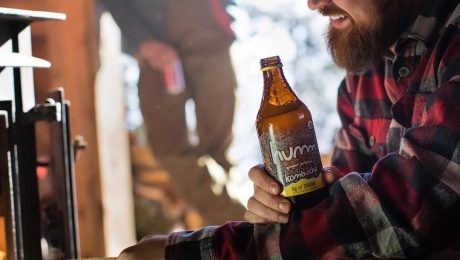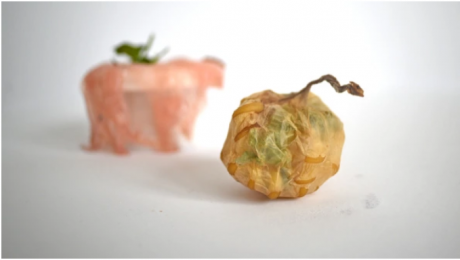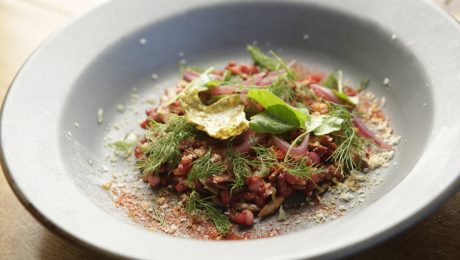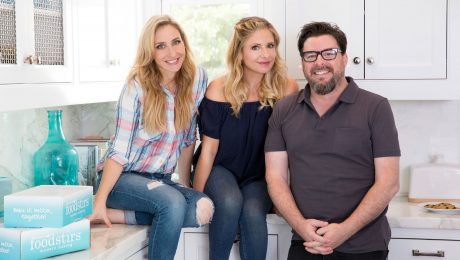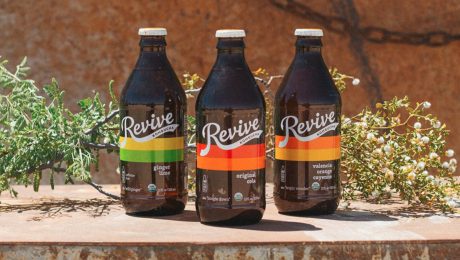The Fermentation Association (TFA), getting more people to enjoy fermented products. Join us at http://ow.ly/dfN030mfgBY .
Oregon Legislators Try to Axe Kombucha Tax
Oregon lawmakers are attempting to end the alcoholic beverage tax placed on kombucha. One of the fastest growing fermented produce and beverages, many kombucha brands are based in Oregon, and state leadership on both sides of the political fence realize how critical kombucha is to Oregon’s economy. “I’ve met with kombucha manufacturers in Oregon who have told me how this outdated tax is holding back their industry,” said Rep. Greg Walden (R-Hood River). “This bill will help these small businesses keep more of their hard earned money to reinvest in their businesses and create jobs in our communities.” The bill – called Keeping our Manufacturers from Being Unfairly Taxed while Championing Health Act (or KOMBUCHA) – would increase alcohol-by-volume limit for kombucha from 0.5 percent to 1.25 percent. Currently, fermented beverages containing at least 0.5 percent of alcohol by volume are taxed through federal alcohol excise taxes.
Read more (Oregon Public Broadcasting) (Photo by: Humm Kombucha)
- Published in Business
WSJ Dubs 2018 “The Year of Fancy Water & Kombucha”
Wall Street Journal called 2018 “The Year of Fancy Water and Kombucha.” Beverages were one of few climbing categories in low supermarket sales. Drinks, according to Nielson, “must now be purpose-fulfilling, light and fizzy.” Kombucha sales rose a huge 43% in 2018 for $400 million in sales. Sparkling water and “value-added water” (beverages with vitamins and electrolytes) rose 17.5% in 2018 for an impressive $2 billion in sales.
Read more (Wall Street Journal)
- Published in Business, Food & Flavor
Student Creates Scoby Food Packaging; Fermentation Growth Just Two Weeks
Today’s food is packaged in so much plastic that humans now regularly consume plastic molecules in their food. A Polish design student created Scoby packaging, an edible and recyclable packaging that farmers can grow to wrap products. The zero waste biological tissue is a similar texture to animal tissue used to encapsulate sausage or salami, but Scoby is vegetarian and can be grown with a simple chemical process student Roza Janusz of the School of Form in Poznan, Poland invented. The process is similar to making kombucha, and the fermentation growth time per sheet is two weeks.
Read more (Fast Company)
- Published in Science
Fermentation Dominating 2019 Food Prediction Lists
Fermentation is dominating 2019 food prediction lists. The New York Times says fermented foods and fermented drinks will rule in 2019. The year’s flavor profile will be “Sour and funky, with shades of heat,” melding fermented ingredients with millennial taste buds. Probiotics and prebiotics will continue to reign as consumers focus on gut health. “As the obsession with digestive health dovetails with the fascination for fermenting, kimchi, sauerkraut and pickled things will work their way into new territory. Smoothies with kefir will be popular, and kombucha will show up in unexpected places like salad dressings,” the article continues. What will you be eating in 2019?
Read more (New York Times)
- Published in Business
New “It” Clean Food Label: Glyphosate Residue-Free Certification
The new “it” clean food label: Glyphosate Residue-Free Certification. The main ingredient in weed killer, glyphosate is the most heavily used pesticide in the world. A probable human carcinogen, Forbes estimates it’s about to become a household name consumers will cut out of their food. Though glyphosate is banned in organic crops, it still drifts into the organic food supply, especially in anything oat-based. The new label is awarded by 3rd-party The Detox Project, who regularly tests brands for glyphosates. Costing $1,472 per year, the certification was first granted to Foodstirs, the organic baking company launched by actress Sarah Michelle Gellar and Galit Laibow.
Read more (Forbes) (Photo by: Foodstirs)
- Published in Business
Brew Dr. Kombucha First National Kombucha Brand to Receive B Corp Certification
Brew Dr. Kombucha became the first nationally distributed kombucha brand to receive a B Corporation certification. The prestigious ranking is given to companies that score high in social sustainability and environmental performance. Brew Dr. sources 100 percent renewable energy, implements a closed-loop brewing process and donates 1 percent of revenue to local environmental non-profits. Matt Thomas, founder and CEO of Brew Dr. Kombucha, said the B Corp certification “is one of the proudest moments I’ve experienced since founding Brew Dr. Kombucha.” He stressed that his company places “equal value on people, planet and profits.” More and more consumers want healthy products, but they also want their products to be created using both environmentally and ethically responsible efforts.
Read more (BevNet) (Photo: Brew Dr. Kombucha)
- Published in Business
Peet’s Coffee Acquires Stake in Revive Kombucha
Peet’s Coffee is the second major coffee brand adding kombucha to their portfolio. The craft coffee company announced that it acquired major stake in Revive Kombucha. Revive grew 168% in the last year, and the latest financing will likely help Revive capture the national market. The kombucha will be sold in more than 15,000 of Peet’s grocery store locations. Eric Lauterbach, President of the Consumer Division at Peet’s Coffee, said kombucha is a natural fit since consumers tend to love both coffee and kombucha.
Read more (PR Newswire) (Photo: Revive Kombucha)
- Published in Business
Global Kombucha Market to Reach $1.8 Billion in Sales by 2019
- Published in Business
Kombucha Entrepreneur Makes Major Deal on “Shark Tank
A kombucha entrepreneur made a major deal on the latest episode of “Shark Tank.” All the investor “sharks” wanted in on Kate Field’s at-home kombucha brewing kit. Two sharks offered Field $350,000 in exchange for 10 percent of her business, The Kombucha Shop. The kit sells for $45 and includes a reusable brew jar, a temperature gauge, test strips, brewing instructions and ingredients. (Inc.) (Photo from: The Kombucha Shop) https://goo.gl/4GjJhq .
- Published in Business
Starbucks Enters Kombucha Market
Starbucks is entering the kombucha market. Evolution Fresh Organic Kombucha (the cold-pressed juice brand purchased by Starbucks) is selling kombucha in seven major U.S. cities. Evolution Fresh says they decided to expand into kombucha because their customers want “beverages with functional benefits.” They also cite the 36 percent growth increase last year in the kombucha and fermented beverages category.
Read more (CNN Money) (Photo: Starbucks)
- Published in Business

